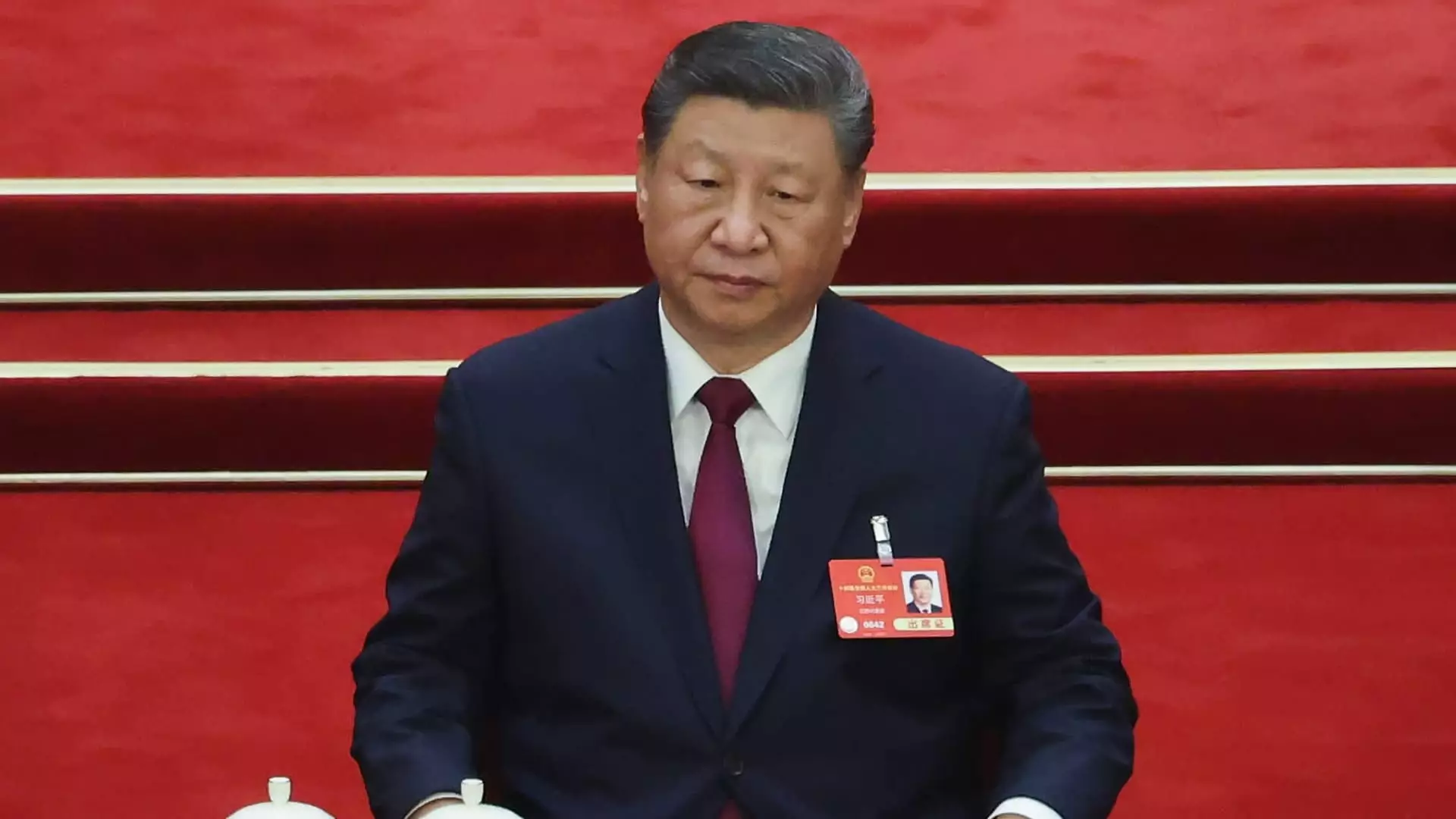The global economy teeters on the brink of disaster, as the ongoing trade conflict between the United States and China escalates to unprecedented levels. Recently, China announced that it would raise its tariffs on U.S. imports to an astonishing 84%, a clear retaliatory measure to the Trump administration’s draconian tariff increases that now exceed 100% on Chinese goods. This tit-for-tat exchange isn’t just a pricing strategy; it symbolizes a catastrophic game of economic chicken where neither side appears willing to back down. The implications of this conflict are immense and tell a story of profound economic insanity that may harm citizens of both nations.
The Impact on Global Trade Dynamics
As two of the world’s largest economies engage in this damaging spiral, the repercussions resonate far beyond their borders. Recent data underscores the stark reality: in 2024 alone, the United States exported around $143.5 billion worth of goods to China, while importing a staggering $438.9 billion. This trade imbalance is not merely a statistic; it reflects the intricate interdependency of global markets. Heightened tariffs threaten to crush this delicate balance and usher in years, if not decades, of economic instability.
The Trump administration’s sweeping tariff policies have not only sparked retaliation from China but also sent shockwaves across global markets. As investors, businesses, and economists absorb the reality of heightened tensions, confidence plummets. The S&P 500, which had been on a bullish trajectory, plummeted almost 20% from its peak, indicative of investors bracing for a tumultuous storm. What we’re witnessing is an economic firestorm fueled by ignorance and aggression, pursuing a reckless agenda under the guise of protecting American jobs.
China’s Defiant Response and Its Consequences
China’s refusal to negotiate, termed by U.S. Treasury Secretary Scott Bessent as reflecting their status as “the worst offenders in the international trading system,” suggests a hardened trajectory that spells disaster. The hasty announcement of counter-tariffs voices China’s resilience, albeit carelessly dismissing the long-term ramifications. It is a gamble to believe that this economic battle will merely yield short-term victories. As the socio-political and economic ramifications expand, both nations will feel the heat of escalating costs, declining markets, and ultimately devastated livelihoods.
The idea that China’s actions will suffocate them economically is a fallacy that blinds the U.S. administration to a far greater truth: the interconnectedness of today’s global landscape means that harming China also harms the United States and its allies. Consumers in both countries will face inflated prices, reduced availability of goods, and the erosion of international goodwill. The collateral damage of misinformation and populist rhetoric could well turn an ineffectual strategy into a full-blown economic crisis.
A Call to Embrace Diplomacy
In the middle of this economic melee, it couldn’t be more evident that the need for constructive dialogue is urgent. The destructive path we’re on poisons relationships, reinforces nationalistic isolationism, and perpetuates cycles of poverty and disconnection. As nations turn against one another in this frenzy, we must champion an approach rooted in genuine negotiation rather than retaliation. An avenue anchored in diplomacy is the only viable option, yet it appears buried beneath the rubble of aggressive posturing.
It’s crucial for progressive economists and policymakers to advocate for a more balanced view of trade—one that doesn’t merely aim for dominance but fosters mutual growth and prosperity. Empowering small businesses and advocating for fair trade practices can provide a soft landing as tensions rise. Real progress will be achieved not through punitive measures, but through engagement that encourages innovation and cooperation, ensuring that no nation is left behind in an ever-evolving global marketplace.
In this moment of chaos, we must resist viewing economic conflicts as binary battles of wins and losses. Instead, genuine success lies in our ability to work together to fortify our economies, not to dismantle them.


Leave a Reply